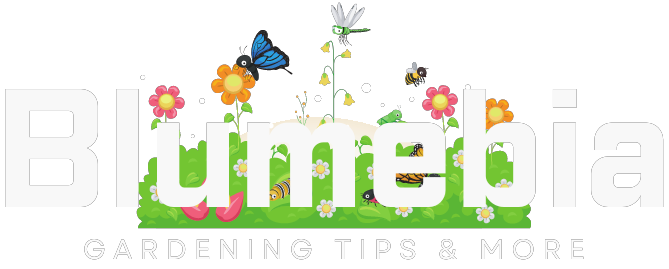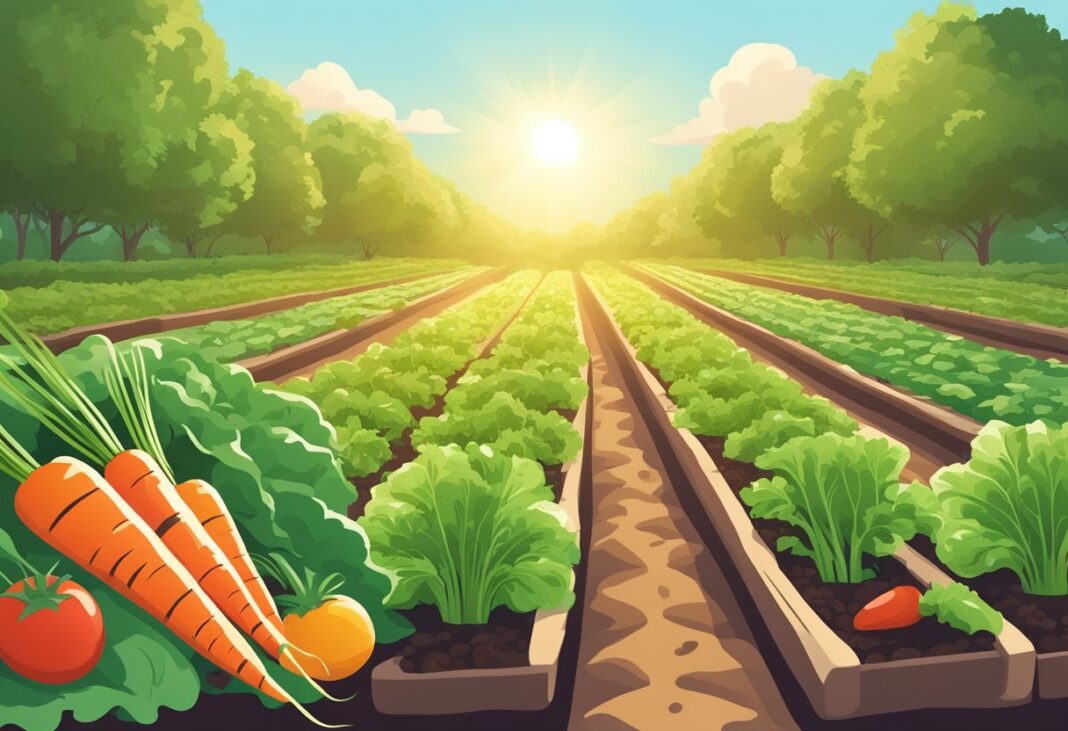If you’re new to gardening, it can be overwhelming to know where to start. But fear not! Growing your own vegetables can be a fun and rewarding experience, and there are plenty of easy-to-grow options that are perfect for beginners. Whether you have a large backyard or a small balcony, you can grow your own fresh produce with just a few simple steps.
One of the best things about growing your own vegetables is that you have complete control over what you’re eating. You can choose to grow organic, non-GMO produce, and you can harvest your vegetables at the peak of ripeness for maximum flavor and nutrition. Plus, gardening is a great way to get outside, enjoy some fresh air and sunshine, and get some exercise.
Selecting Your First Vegetables
As a beginner, it’s important to choose vegetables that are easy to grow and maintain. In this section, we’ll discuss the criteria for beginner-friendly vegetables and provide a list of top easy-to-grow vegetables.
Criteria for Beginner-Friendly Vegetables
When selecting your first vegetables, consider the following criteria:
Low maintenance: Choose vegetables that don’t require a lot of attention and care. You don’t want to spend all your time and energy on gardening.
Fast-growing: Pick vegetables that have a short growing period. This will give you a sense of accomplishment and keep you motivated.
Space requirements: Make sure the vegetables you choose will fit in your garden or container. You don’t want to overcrowd your plants.
Resistance to pests and diseases: Look for vegetables that are resistant to common pests and diseases. This will save you time and money in the long run.
Top Easy-to-Grow Vegetables
Here are some of the top easy-to-grow vegetables for beginners:
Lettuce: Lettuce is a fast-growing vegetable that requires minimal maintenance. It can be grown in both garden beds and containers.
Zucchini: Zucchini is another easy-to-grow vegetable that is resistant to powdery mildew, a common squash disease.
Radishes: Radishes are fast-growing and can be harvested in as little as 3-4 weeks. They don’t require a lot of space and can be grown in containers.
Green beans: Green beans are easy to grow and can produce a lot of beans in a small space. They require full sun and well-drained soil.
Tomatoes: Tomatoes are a popular vegetable for beginners. They require full sun and regular watering, but they are relatively easy to grow and can produce a lot of fruit.
By choosing vegetables that meet the criteria for beginner-friendly vegetables and selecting from the top easy-to-grow vegetables, you’ll be well on your way to a successful and enjoyable gardening experience.
Preparing Your Garden Space
Before you start planting your vegetables, you need to prepare your garden space. This will ensure that your plants have the best chance of growing healthy and strong. Here are some tips to help you get started.
Choosing the Right Location
Choosing the right location for your garden is crucial. You want to make sure that your plants get enough sunlight, water, and nutrients. Ideally, your garden should be located in an area that gets at least 6 hours of direct sunlight per day.
You should also consider the soil quality in your chosen location. If your soil is poor, you may need to amend it with compost or other organic matter. It’s also important to ensure that your garden is located in an area with good drainage.
Soil Preparation Basics
Preparing your soil is essential to the success of your vegetable garden. Start by removing any weeds or debris from the area. Then, loosen the soil with a garden fork or tiller to a depth of at least 12 inches.
Next, you should amend your soil with compost or other organic matter. This will help improve soil fertility and structure. You can also add other amendments such as lime or sulfur to adjust the pH level of your soil.
Finally, rake the soil smooth and level before planting your vegetables.
Container Gardening Considerations
If you don’t have a lot of outdoor space, container gardening is a great option. You can grow vegetables in pots, containers, or raised beds on a patio, balcony, or even a windowsill.
When choosing containers, make sure they have good drainage holes to prevent waterlogging. You should also use high-quality potting soil and fertilizers specifically designed for container gardening.
Keep in mind that container gardens require more frequent watering than traditional gardens. You should also be aware of the size and growth habits of your plants to ensure they have enough space to grow and thrive.
By following these tips, you can prepare your garden space and set yourself up for a successful vegetable garden.
Planting and Maintenance Tips
Sowing Seeds vs. Transplanting
When it comes to planting vegetables, you have two options: sowing seeds or transplanting seedlings. Sowing seeds directly into the ground is an economical option, but it requires more patience and attention. On the other hand, transplanting seedlings is faster and easier, but it can be more expensive.
If you choose to sow seeds, make sure to follow the instructions on the seed packet for proper planting depth and spacing. Keep the soil moist until the seeds germinate, and thin out the seedlings as needed to prevent overcrowding.
If you choose to transplant seedlings, make sure to harden them off first by gradually exposing them to outdoor conditions over the course of a week. When planting, make sure to dig a hole deep enough to accommodate the roots, and water the seedlings thoroughly after planting.
Watering and Feeding Your Vegetables
Watering and feeding your vegetables is crucial to their growth and productivity. Most vegetables require at least 1 inch of water per week, either from rainfall or irrigation. Make sure to water deeply and infrequently, rather than shallowly and frequently, to encourage deep root growth.
In terms of feeding, most vegetables benefit from a balanced fertilizer applied every 4-6 weeks during the growing season. You can also amend the soil with compost or other organic matter to improve soil fertility and structure.
Dealing with Pests and Diseases
Pests and diseases can wreak havoc on your vegetable garden if left unchecked. The best way to prevent problems is to practice good garden hygiene, such as removing debris and weeds, rotating crops, and planting disease-resistant varieties.
If you do encounter pests or diseases, there are a variety of organic and chemical control methods available. Consult with your local cooperative extension or garden center for advice on the best approach for your specific situation.
Frequently Asked Questions
What are the top vegetables recommended for novice gardeners to start with?
If you’re new to gardening, it’s best to start with vegetables that are easy to grow and maintain. Some of the best vegetables for beginners include tomatoes, cucumbers, zucchini, lettuce, and green beans. These vegetables are not only easy to grow, but they also produce a bountiful harvest.
Which vegetables can be easily grown in containers for those with limited space?
If you have limited space, container gardening is a great option. Vegetables that grow well in containers include tomatoes, lettuce, peppers, and herbs such as basil and parsley. When choosing a container, make sure it is large enough to accommodate the plant’s root system and has proper drainage.
What are some vegetables that can be grown year-round by beginner gardeners?
Some vegetables that can be grown year-round include lettuce, spinach, kale, and chard. These vegetables are known as cool-season crops and can tolerate cooler temperatures. To ensure a continuous harvest, plant these vegetables in succession every few weeks.
Can you suggest vegetables that are well-suited for raised bed gardening?
Raised bed gardening is a popular option for beginners because it allows for better soil drainage and easier weed control. Vegetables that are well-suited for raised bed gardening include tomatoes, peppers, cucumbers, and zucchini. These vegetables thrive in well-draining soil and benefit from the added nutrients in the raised bed.
What are the simplest vegetables to maintain for someone new to gardening?
If you’re new to gardening and looking for vegetables that are easy to maintain, consider planting lettuce, green beans, and zucchini. These vegetables require minimal care and attention, making them perfect for novice gardeners.
How should a beginner plan their vegetable garden layout for optimal growth?
When planning your vegetable garden layout, it’s important to consider factors such as sunlight, soil quality, and spacing. Make sure to place taller plants on the north side of your garden to prevent shading of smaller plants. Also, avoid overcrowding your plants and make sure to rotate your crops to prevent soil-borne diseases.



